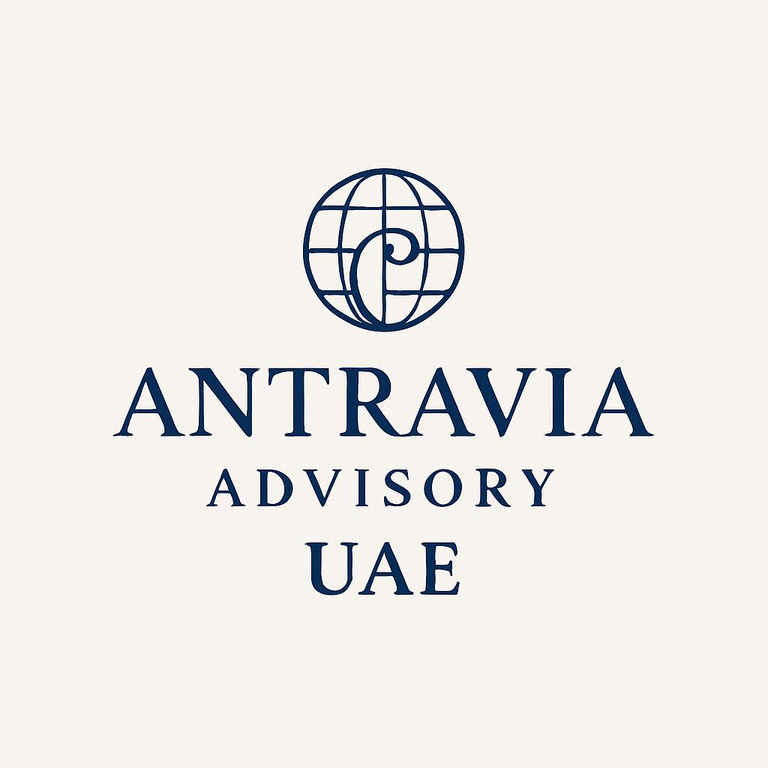How to Set Up a Company in the UAE - A Practical Guide
Step-by-step guide to setting up a business in the UAE. Learn about mainland, free zones, banking, governance, and compliance for new companies.
TRAVEL FINANCE AND ACCOUNTING BLOG - U.A.E EDITION
10/7/20253 min read


How to Set Up a Company in the UAE
Setting up a business in the UAE is faster than most markets but still demands careful sequencing, local awareness, and an understanding of the rules that distinguish mainland companies from those in free zones. Whether your focus is trade, consulting, or services, the structure you choose determines how you operate, hire, and pay tax.
Mainland vs Free Zone
Mainland licences allow you to trade anywhere in the UAE and abroad. Full foreign ownership is now permitted for most business activities, with a few exceptions in strategic sectors. Free zones, on the other hand, are semi-autonomous areas offering simplified licensing, faster registration, and full ownership. They’re ideal for businesses operating internationally or B2B within the zone network.
A third category exists in the financial centres, DIFC in Dubai and ADGM in Abu Dhabi, where English common law applies. These are often used for investment, holding, or financial services companies.
Setting Up Step by Step
Choose your activity and legal structure. This drives which authority you register with and what documentation is needed.
Reserve a trade name with the relevant economic department or free zone.
Apply for initial approval. This confirms there are no objections to your planned business.
Draft constitutional documents such as the Memorandum of Association (MOA) or Local Service Agent (LSA) agreement if applicable.
Secure office space and register the lease (Ejari in Dubai).
Collect any special approvals required for your sector.
Submit final documents and pay licence fees.
Free zones streamline most of this online. Mainland companies must deal with more steps, but the process is still straightforward once documents are in order.
Documents you’ll need
Passport and Emirates ID of shareholders and managers
Proposed company name and activity list
MOA or board resolution for corporate shareholders
Lease or office agreement
Ultimate Beneficial Owner (UBO) declaration
Economic Substance (ESR) notification if applicable
Bank KYC documents
Establishment card and payroll registration if hiring staff
Bank Accounts and Payroll
Opening a bank account requires your trade licence, constitutional documents, and evidence of source of funds. Banks will expect a clear explanation of your business model and customer base.
If you employ staff, you must register with MOHRE and use the Wage Protection System (WPS) to pay salaries on time. Some free zones use MOHRE directly; others run their own employment platforms.
Corporate Governance and Ongoing Obligations
Every company must maintain updated UBO records and notify the registrar of changes. Entities carrying on defined “Relevant Activities”, such as distribution, headquarters, or financing, are subject to Economic Substance Regulations and annual filings. Businesses also need compliant accounting records under IFRS or IFRS for SMEs, depending on size.
If you hold client or employee data, align privacy notices with the UAE’s Personal Data Protection Law or the DIFC/ADGM frameworks where relevant.
Choosing the Right Structure
Your choice should depend on where your clients are and how you plan to trade. Mainland companies are best for local service delivery and public-sector work. Free zone entities suit exporters, consultants, and holding structures. If you deal with high-value intellectual property or financial products, the common-law financial centres provide a stable regulatory base.
For most entrepreneurs, a free-zone licence offers the fastest path to launch while keeping compliance manageable.
Common Pitfalls
Using a free-zone licence for onshore sales without proper registration.
Confusing a free zone with a designated VAT zone — they are not the same.
Neglecting ESR and UBO filings until renewal time.
Over-promising on visa quotas or office space; every zone calculates differently.
Final Thoughts
The UAE is one of the easiest places in the world to form a company, but it rewards precision. The key is to get the structure right from the start, maintain proper documentation, and understand that substance matters just as much as speed. A well-structured business gives you credibility with banks, regulators, and future investors.
For more, explore our guides on Payroll & WPS, VAT Registration, ESR, Company Setup, and Banking. Contact Antravia AE for personalized setup advice.


References – How to Set Up a Company in the UAE
UAE Government Portal – “Start a business in the UAE” (u.ae)
https://u.ae/en/information-and-services/business/startabusinessinuaeDubai Department of Economy & Tourism – Business setup guide and licence types
https://ded.aeAbu Dhabi Department of Economic Development – Business licensing and regulations
https://added.gov.aeMinistry of Economy – Free zone registration procedures and commercial activities
https://www.moec.gov.aeInvest in Dubai – Mainland registration process and fees
https://invest.dubai.aeUAE Cabinet Decision No. 58 of 2020 – Regulation of Beneficial Owner Procedures
https://mof.gov.aeUAE Ministry of Finance – Economic Substance Regulations Guidance
https://mof.gov.ae/en/strategic-partnerships/initiatives/Pages/economic-substance.aspxMinistry of Human Resources and Emiratisation (MOHRE) – Wage Protection System (WPS) compliance
https://mohre.gov.aeFederal Decree-Law No. 45 of 2021 – Personal Data Protection Law (PDPL)
https://u.ae/en/about-the-uae/digital-uae/dataDIFC Data Protection Law (No. 5 of 2020) – Guidance and compliance requirements
https://www.difc.aeADGM Data Protection Regulations (2021)
https://www.adgm.com
This article by Antravia is general information, not advice. Regulations evolve quickly (especially CT, QFZP, and excise). Verify key positions against the primary sources below or with a locally licensed advisor.
Antravia Advisory U.A.E.
Where Travel Meets Smart Finance
Email:
Contact us:
© 2025. All rights reserved. | Disclaimer | Privacy Policy | Terms of Use | Accessibility Statement
© 2025 — Antravia.ae part of the Antravia Group.
Antravia.com | Antravia.co.uk | Antravia.ae |
Finance.travel | Tax.travel | Consultancy.travel | Vat.travel | Vat.claims |
USSales.tax | EuroVAT.tax | UKVAT.tax |
contact@antravia.com
Antravia LLC
